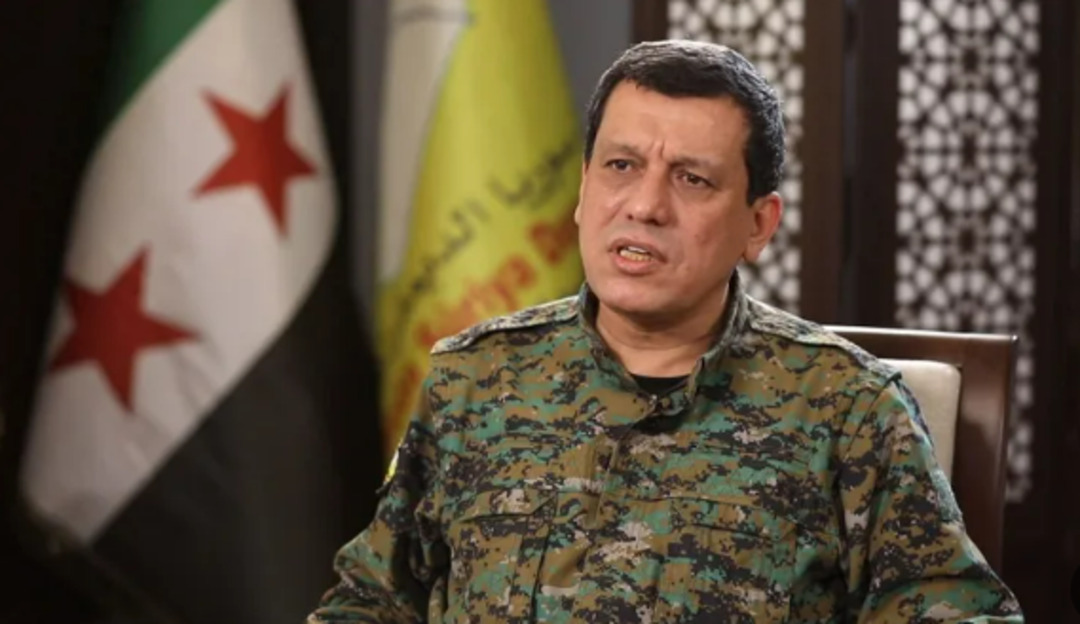-
Crucial Negotiations on the Fate of Kurdish Forces in Syria

Twelve members of the "National Army" factions were killed when drones belonging to the "Syrian Democratic Forces" (SDF) targeted military vehicles and armored personnel carriers belonging to the factions around the Tishrin Dam east of Aleppo.
Negotiators continue to focus on reaching a potential agreement to settle one of the most complex issues regarding the future of Syria: the fate of the Kurdish forces. The United States considers these forces a key ally in the fight against ISIS, while Turkey views them as a threat to national security.
Multiple sources told Reuters that diplomats and military officials from the United States, Turkey, and Syria, as well as the Kurdish-led Syrian Democratic Forces, have shown greater flexibility and patience during the negotiations than what is evident in their public statements. Several of these sources have participated directly in intensive discussions over recent weeks.
According to the information, this may pave the way for a potential agreement in the coming months, which could involve the departure of some Kurdish fighters from northeastern Syria, while others would come under the command of Syria's new Ministry of Defense.
Despite possible progress, there are still many complex issues that require solutions, including how to integrate the well-trained and well-equipped Syrian Democratic Forces fighters into the Syrian security framework and manage the lands under their control, which contain vital oil and wheat fields.
Addressing these issues, the commander of the Syrian Democratic Forces, Mazloum Abdi, emphasized that modifying the administrative structure to be decentralized is a key demand of his forces, which may conflict with the goals of the new Syrian government that seeks to restore control over the entire national territory.
For his part, Syria's new Defense Minister, Marahf Abu Qusra, expressed his rejection of the idea of maintaining the Syrian Democratic Forces as a cohesive entity, stressing the necessity of integrating all armed groups into the official forces.
The Kurdish issue relies on ongoing U.S. support, and the development of the situation also depends on the position of Turkish President Recep Tayyip Erdoğan, particularly whether he will avoid escalating military attacks against the Kurdish People's Protection Units (YPG).
In turn, Turkish Foreign Minister Hakan Fidan confirmed that the new Syrian authorities must be given the opportunity to end the "occupation and terrorism" created by the YPG. However, he did not specify how long Ankara would wait before considering any military incursions.
A political solution in northeastern Syria is seen as essential to ensuring the stability of the country, as U.S. support for the Syrian Democratic Forces remains a contentious issue with Turkey, complicating any sustainable resolution.
An American official noted that the YPG cannot remain a continuous point of tension between Turkey and the United States, as both sides consider combating ISIS forces imperative.
On the other hand, Turkish officials hope that the recent escalation in negotiations will lead to real progress that fulfills their ambitions, especially with Trump returning to the White House, whom some view as a potential ally in advancing their interests in the region.
The UN Secretary-General has warned of "grave" consequences for Syria and the region if a successful political solution is not reached, making the current developments in the political process regarding Syria of significant importance.
Tags
You May Also Like
Popular Posts
Caricature
BENEFIT Sponsors BuildHer...
- April 23, 2025
BENEFIT, the Kingdom’s innovator and leading company in Fintech and electronic financial transactions service, has sponsored the BuildHer CityHack 2025 Hackathon, a two-day event spearheaded by the College of Engineering and Technology at the Royal University for Women (RUW).
Aimed at secondary school students, the event brought together a distinguished group of academic professionals and technology experts to mentor and inspire young participants.
More than 100 high school students from across the Kingdom of Bahrain took part in the hackathon, which featured an intensive programme of training workshops and hands-on sessions. These activities were tailored to enhance participants’ critical thinking, collaborative problem-solving, and team-building capabilities, while also encouraging the development of practical and sustainable solutions to contemporary challenges using modern technological tools.
BENEFIT’s Chief Executive Mr. Abdulwahed AlJanahi, commented: “Our support for this educational hackathon reflects our long-term strategic vision to nurture the talents of emerging national youth and empower the next generation of accomplished female leaders in technology. By fostering creativity and innovation, we aim to contribute meaningfully to Bahrain’s comprehensive development goals and align with the aspirations outlined in the Kingdom’s Vision 2030—an ambition in which BENEFIT plays a central role.”
Professor Riyadh Yousif Hamzah, President of the Royal University for Women, commented: “This initiative reflects our commitment to advancing women in STEM fields. We're cultivating a generation of creative, solution-driven female leaders who will drive national development. Our partnership with BENEFIT exemplifies the powerful synergy between academia and private sector in supporting educational innovation.”
Hanan Abdulla Hasan, Senior Manager, PR & Communication at BENEFIT, said: “We are honoured to collaborate with RUW in supporting this remarkable technology-focused event. It highlights our commitment to social responsibility, and our ongoing efforts to enhance the digital and innovation capabilities of young Bahraini women and foster their ability to harness technological tools in the service of a smarter, more sustainable future.”
For his part, Dr. Humam ElAgha, Acting Dean of the College of Engineering and Technology at the University, said: “BuildHer CityHack 2025 embodies our hands-on approach to education. By tackling real-world problems through creative thinking and sustainable solutions, we're preparing women to thrive in the knowledge economy – a cornerstone of the University's vision.”
opinion
Report
ads
Newsletter
Subscribe to our mailing list to get the new updates!






















